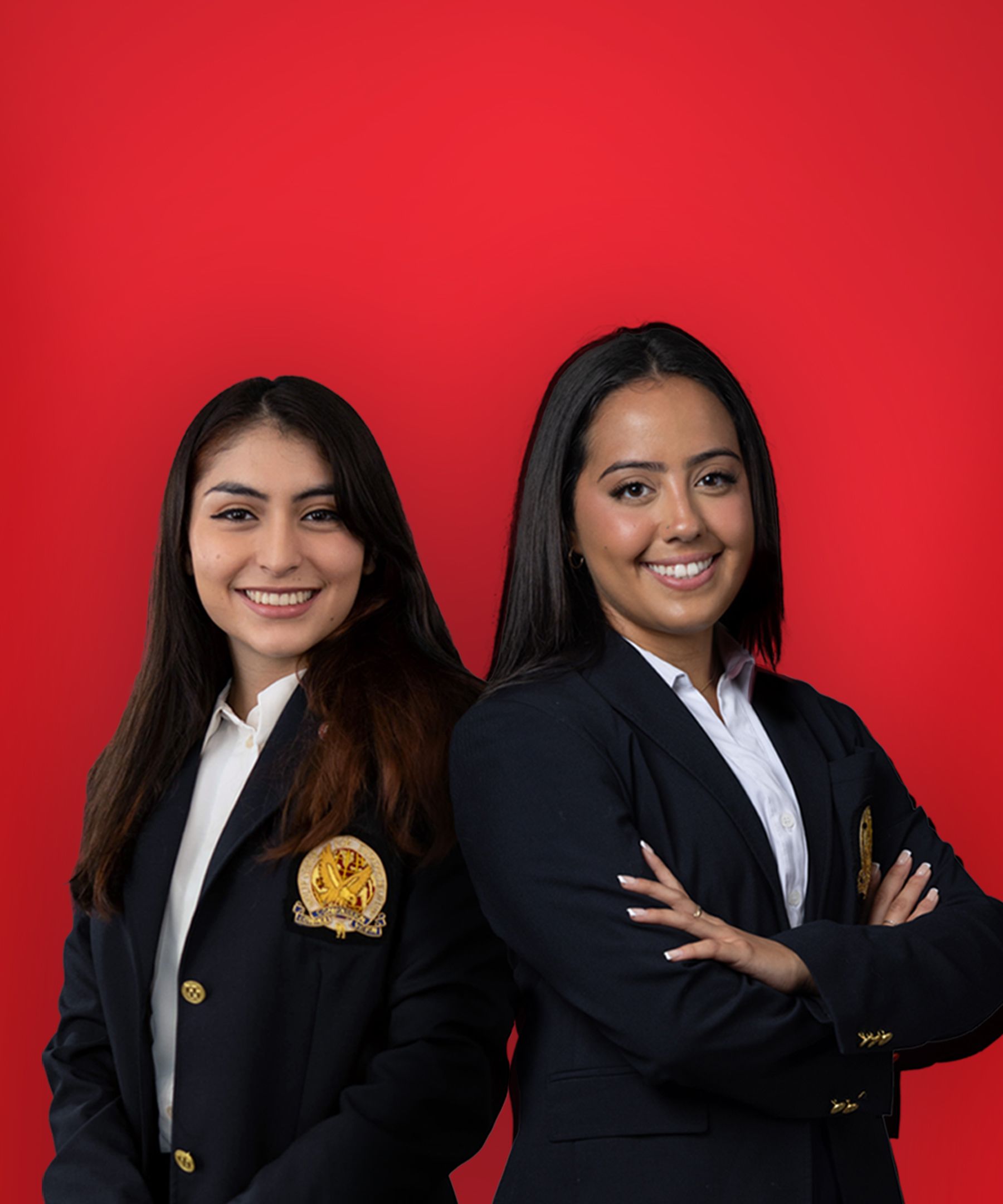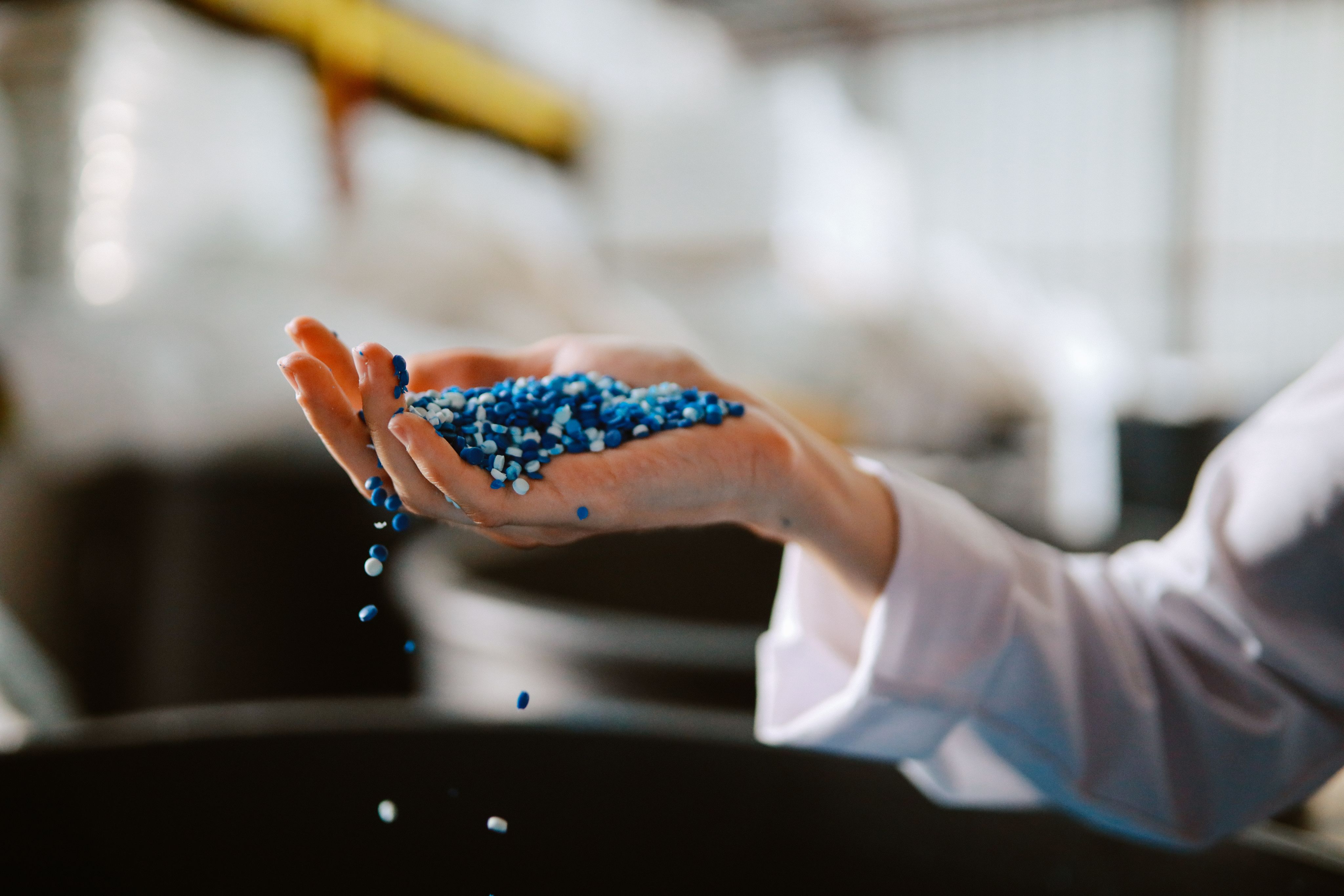Tackling the Global Plastics Problem
UH students turn an innovative product into a promising business plan for sustainable packaging in the shipping industry.
By Rashda Khan

Ateam of University of Houston undergraduate students from the No. 1-ranked Cyvia and Melvyn Wolff Center for Entrepreneurship have found success with their innovative proposal ShipSafe, a renewable packaging company dedicated to helping companies transition to cleaner supply chains.
Arianna Chavarria, Fernanda Ruelas, Nicolas Einarsson and Bennett Mainini won second place for their proposal at the inaugural Circular Plastics Challenge, hosted by the UH Energy Transition Institute. The competition challenged students to address the critical issue of plastic waste and create a real-world circular economy.
ShipSafe is built around a biodegradable plastic developed and patented by Megan Robertson, a chemical engineering professor at the UH Cullen College of Engineering. This unique material uses a vegetable oil additive with a biologically derived plastic to enhance durability, making it resistant to breaking during use.
The team, which also placed in the Wolff Center’s IP Business Plan Competition, took this innovative material and transformed it into a viable business concept, coming up with a plausible product, identifying a market and creating a business plan.
“My biggest takeaway was a deeper understanding of the push that many energy companies have to switch over to cleaner supply chains and materials,” Ruelas says, noting that the extensive research required was a major challenge. The team studied market drivers, technical and intellectual property, and other topics to craft the plan.
More than 60 students participated in the Circular Plastics Challenge. It is one of the many interdisciplinary UH projects that leverage the power of collaboration. Students engage with subject matter experts, venture capital and investment specialists, and successful entrepreneurs to sharpen their understanding and drive positive change. The field of competitors was pared down to six finalist teams, who presented their solutions at the 2023 Energy Night hosted by the UH Energy Coalition.
“It’s a really complex problem to go after, and I give the student teams credit for putting solutions together and showcasing some really innovative thinking.”
“If you look at the wide variety of proposals and approaches, you can see the complexity of the problem and all the different things that society must consider finding solutions to,” says Joe Powell, founding executive director of the ETI. “I think circularity in plastics and chemicals is as difficult to address as the net-zero issue within the energy sector — if not more. We have a unique opportunity here to tackle both, and it’s really great to see our students thinking ahead.”
The UH ETI is an academic research institute focused on advancing reliable, affordable, environmentally responsible energy for all through a just and equity-driven pathway. It aims to benefit vulnerable communities and, in addition to circular plastics, focuses on carbon management and hydrogen. The ETI offers opportunities for student development and facilitates top-tier research and thought leadership by partnering with UH colleges, departments, centers and institutes.
“In terms of impact and thinking about circularity and coming up with out-of-the-box solutions, we’re off to a great start at the University of Houston,” Powell says. “It’s a really complex problem to go after, and I give the student teams credit for putting solutions together and showcasing some really innovative thinking.”
The competition may be over, but the team’s work is far from finished. Ruelas and Chavarria, who both graduated in May, are moving forward in their efforts to get the patent licensed and into market.
“The next steps for ShipSafe involve refining our business plan, competing in additional competitions to secure funding and establishing a board of advisors composed of industry leaders,” Chavarria says. “These initiatives align with our goal to further develop ShipSafe and position it as a leader in sustainable packaging solutions.”
As newly minted graduates entering the workforce, they agree the experience has been invaluable.
“This sort of industry is hard to push into because of the learning curve and the fact that many people would not expect a college student to keep up with their conversations or ask good questions, so you should always be 110% prepared to get challenged and to push forward,” Ruelas says. “Any time you can compete or present is a learning and networking opportunity, worth your time and effort in the long run.”

The Significance of ShipSafe
According to the team’s business plan, ShipSafe addresses the need for environmentally friendly materials in the shipping industry as global concerns about plastic pollution and climate change mount. The product sets itself apart in three important ways:
Biodegradable Plastic
ShipSafe is composed of a patented biodegradable plastic formulation, ensuring minimal environmental impact.
Sustainable Shipping
By replacing traditional plastics with ShipSafe, businesses can significantly reduce their carbon footprint and contribute to a cleaner planet.
Viable Alternative
ShipSafe enables businesses to maintain the quality of their packaging with a viable alternative to traditional plastics.


